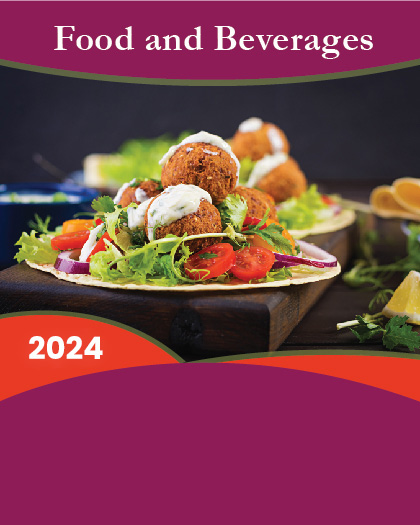
Global Botanical Supplements Market is valued at approximately USD 42.75 billion in 2023 and is anticipated to grow with a healthy growth rate of more than 15.69% over the forecast period 2024-2032. Botanical supplements, also known as herbal supplements or phytochemicals, are nutritional products made from plants or plant extracts, designed to complement diets and offer additional health benefits. These supplements, available in forms such as capsules, tablets, liquids, and teas, harness the natural properties of plant parts including leaves, stems, flowers, roots, and seeds. Historically used in traditional medicine, botanical supplements are known for enhancing immune function, reducing inflammation, improving cognitive performance, and promoting overall wellness. The growing consumer inclination towards natural and preventive health treatments drives the demand for botanical supplements, further facilitated by their widespread availability via eCommerce platforms. Despite the challenges posed by cost-effective alternatives, unstructured regulations, and a lack of experimental evidence, ongoing innovations in formulation and strategic research and development (R&D) activities present significant growth opportunities in the market.
The increasing popularity of leaf-derived botanical supplements is notable due to their rich phytonutrient content and associated health benefits, such as anti-inflammatory properties and digestive support. The market for botanical supplements continues to diversify, with products derived from flowers, fruits, roots, seeds, and stems, each offering unique health advantages. Powdered botanical supplements are gaining traction due to their versatility and ease of customization, catering to consumer preferences for personalized health solutions. The market also addresses the needs of various age groups, with products tailored for children, adolescents, adults, and seniors, each designed to meet specific health requirements ranging from growth and development to stress relief and cognitive support.
The application spectrum of botanical supplements is broad, encompassing areas such as anti-cancer, bone and joint health, cardiac health, diabetes management, energy and weight management, gastrointestinal health, general health, and immunity. The COVID-19 pandemic has heightened awareness of the importance of a robust immune system, thereby boosting the demand for immunity-targeting botanical supplements. Offline distribution channels, including health food stores, supermarkets, and pharmacies, remain crucial for consumers who prefer in-person interaction and product examination. Conversely, online channels offer convenience, competitive pricing, and a wide product variety, appealing to a different segment of the market.
The key regions considered for the global Botanical Supplements Market study include Asia Pacific, North America, Europe, Latin America, and Rest of the World. North America is a dominating region in the Botanical Supplements Market in terms of revenue. The market growth in the region is being attributed to factors including the growing preference for herbal medicines and increased spending on preventive health measures. Whereas, the market in Asia Pacific is anticipated to grow at the fastest rate over the forecast period fueled by rising government initiatives in countries like China, India, South Korea, and Australia are promoting the cultivation and export of medicinal plants, thereby supporting market growth.
Major market players included in this report are:
Amway Corporation
Nestle S.A.
Herbalife International India Pvt. Ltd.
Blackmores Limited by Kirin Holdings Company, Limited
Himalaya Wellness Company
GNC Holdings, LLC
Nature's Way Brands, LLC
Gaia Herbs, Inc.
Dabur India Ltd.
Bio-Botanica by Bio Answer Holdings Inc.
BASF SE
Ayujoy Herbals Ltd.
Arizona Natural Products
Airenherbals
Procter & Gamble Company
The detailed segments and sub-segment of the market are explained below:
By Source:
Flowers
Fruits
Leaves
Roots
Seeds
Stems
By Form:
Capsules
Gummies
Liquid
Powder
Tablets
By Age Group:
0-10 Years
11-20 Years
21-45 Years
46-60 Years
60 Years and above
By Application:
Anti-Cancer
Bone & Joint Health
Cardiac Health
Diabetes
Energy & Weight Management
Gastrointestinal Health
General Health
Immunity
By Distribution Channel:
Offline
Online
By Region:
North America
U.S.
Canada
Europe
UK
Germany
France
Spain
Italy
ROE
Asia Pacific
China
India
Japan
Australia
South Korea
RoAPAC
Latin America
Brazil
Mexico
RoLA
Middle East & Africa
Saudi Arabia
South Africa
RoMEA
Years considered for the study are as follows:
Historical year - 2022
Base year - 2023
Forecast period - 2024 to 2032
Key Takeaways:
Market Estimates & Forecast for 10 years from 2022 to 2032.
Annualized revenues and regional level analysis for each market segment.
Detailed analysis of geographical landscape with Country level analysis of major regions.
Competitive landscape with information on major players in the market.
Analysis of key business strategies and recommendations on future market approach.
Analysis of competitive structure of the market.
Demand side and supply side analysis of the market.
























